


Expanding the frontiers of AI reliability
Quotient Labs develops the research and tools that underpin dependable AI systems.
Our work spans cutting-edge research, practical evaluation libraries, and implementation guides, delivering both academic insights and production-ready solutions.
Recent Publications
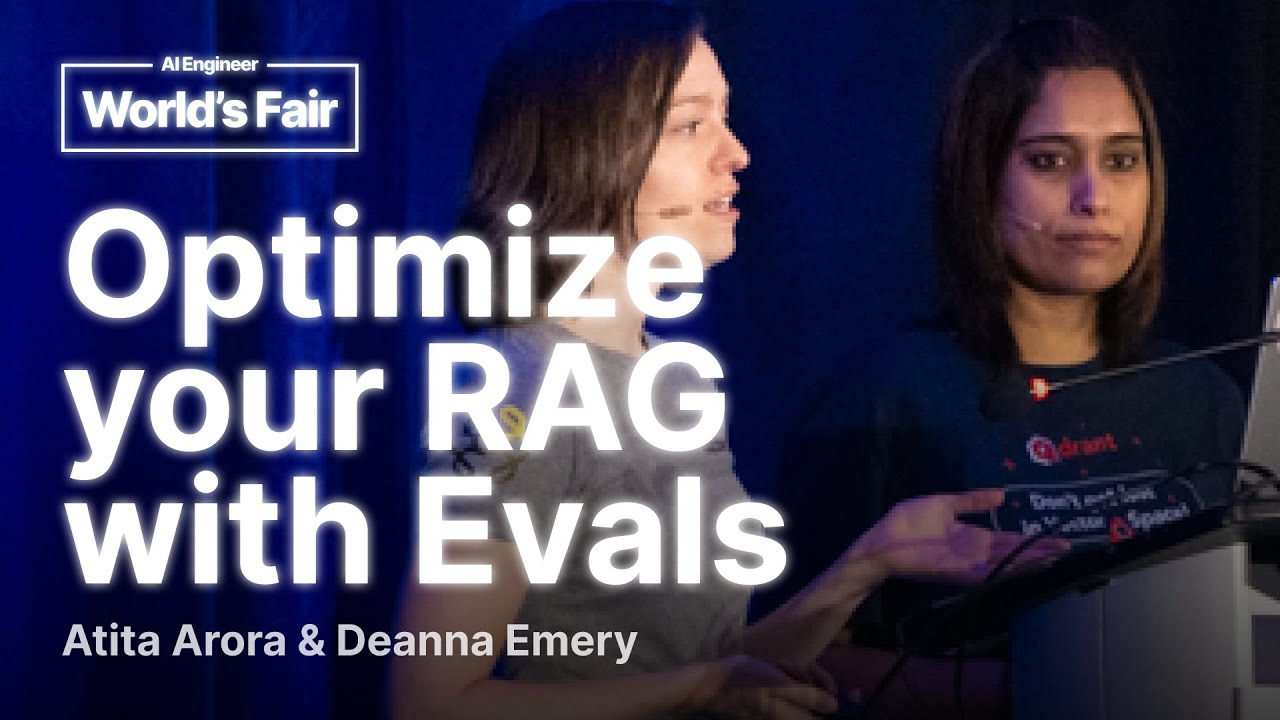
Navigating RAG Optimization with an Evaluation Driven Compass
Retrieval Augmented Generation (RAG) has become a cornerstone for integrating domain-specific content and addressing hallucinations in AI applications. As the adoption of RAG solutions intensifies across industries, a pressing challenge emerges: understanding and identifying where within the complex RAG framework changes and improvements can be made.
Join Quotient AI and Qdrant as we navigate an end-to-end process for RAG experimentation and evaluation, offering insights into optimizing performance and addressing hurdles along the RAG implementation journey.


Subject-Matter Expert Language Liaison (SMELL)
A framework for aligning LLM evaluators to human feedback
Evaluating large language model (LLM) outputs efficiently and accurately – especially for domain-specific tasks – remains a significant challenge in AI development. We present Subject-Matter Expert Language Liaison (SMELL), a novel framework that combines human expertise with LLM capabilities to automatically create feedback-informed LLM judges. SMELL addresses the limitations of generic LLM judges while maintaining scalability through a four-stage pipeline: data annotation by human experts, feedback synthesis, rubric generation, and evaluation using the generated rubric.judges uses SMELL as part of its autojudge method.

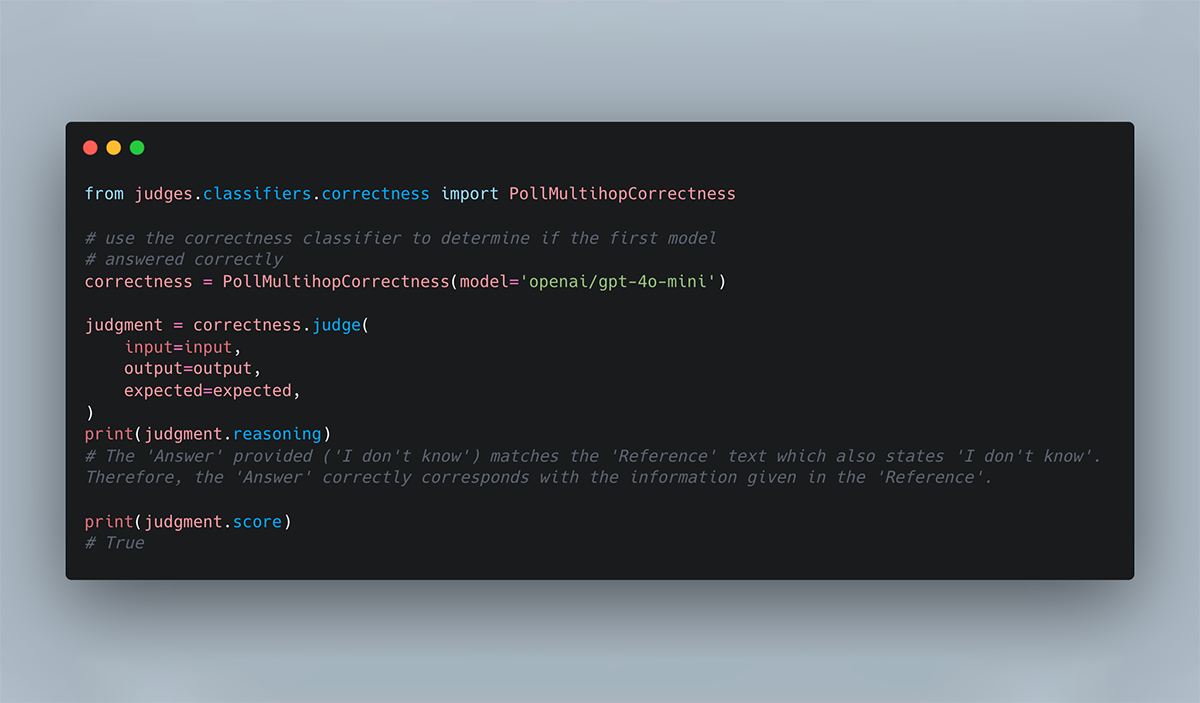
judges
judges is a small open-source library to use and create LLM-as-a-Judge evaluators. The purpose of judges is to have a curated set of LLM evaluators in a low-friction format across a variety of use cases that are backed by research, and can be used off-the-shelf or serve as inspiration for building your own LLM evaluators.

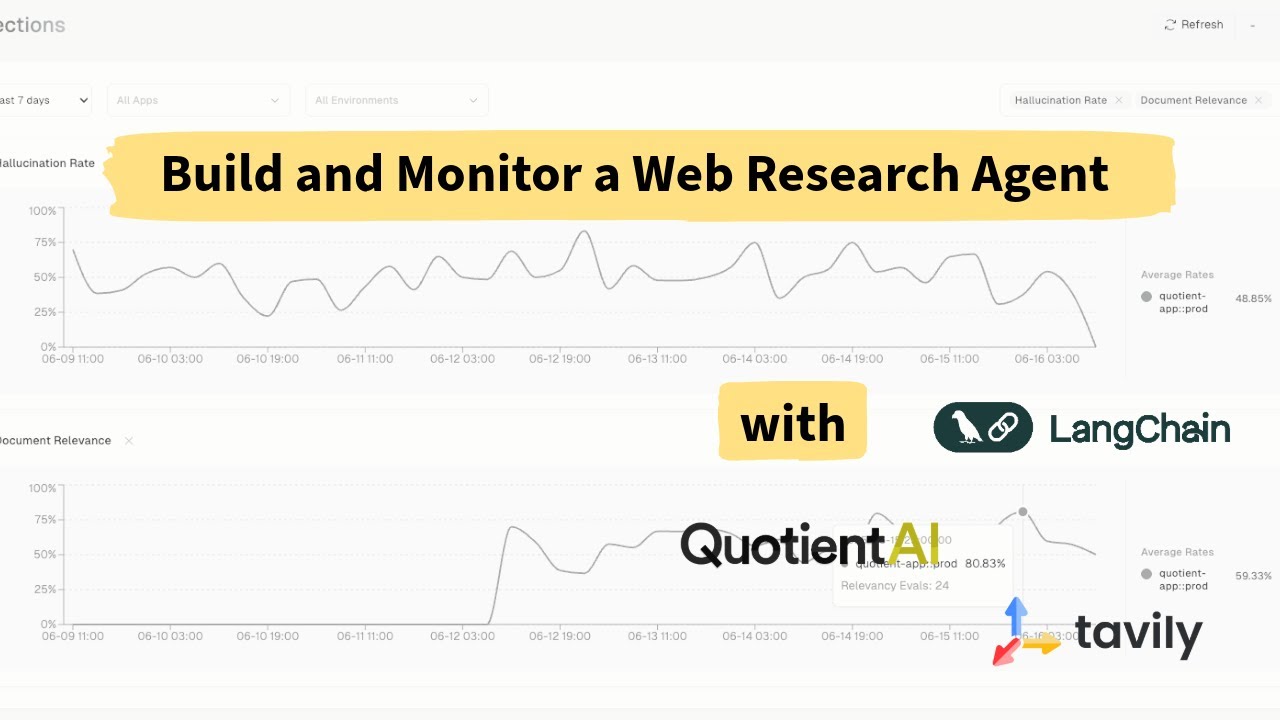
Build and Monitor a Web Research Agent with Tavily, OpenAI, LangChain & Quotient
This notebook shows how to build a LangChain-based research assistant powered by Tavily and OpenAI. The agent answers real-world search queries using live web content via Tavily tools, and is monitored using Quotient AI to detect hallucinations, irrelevant retrievals, and other failure modes.

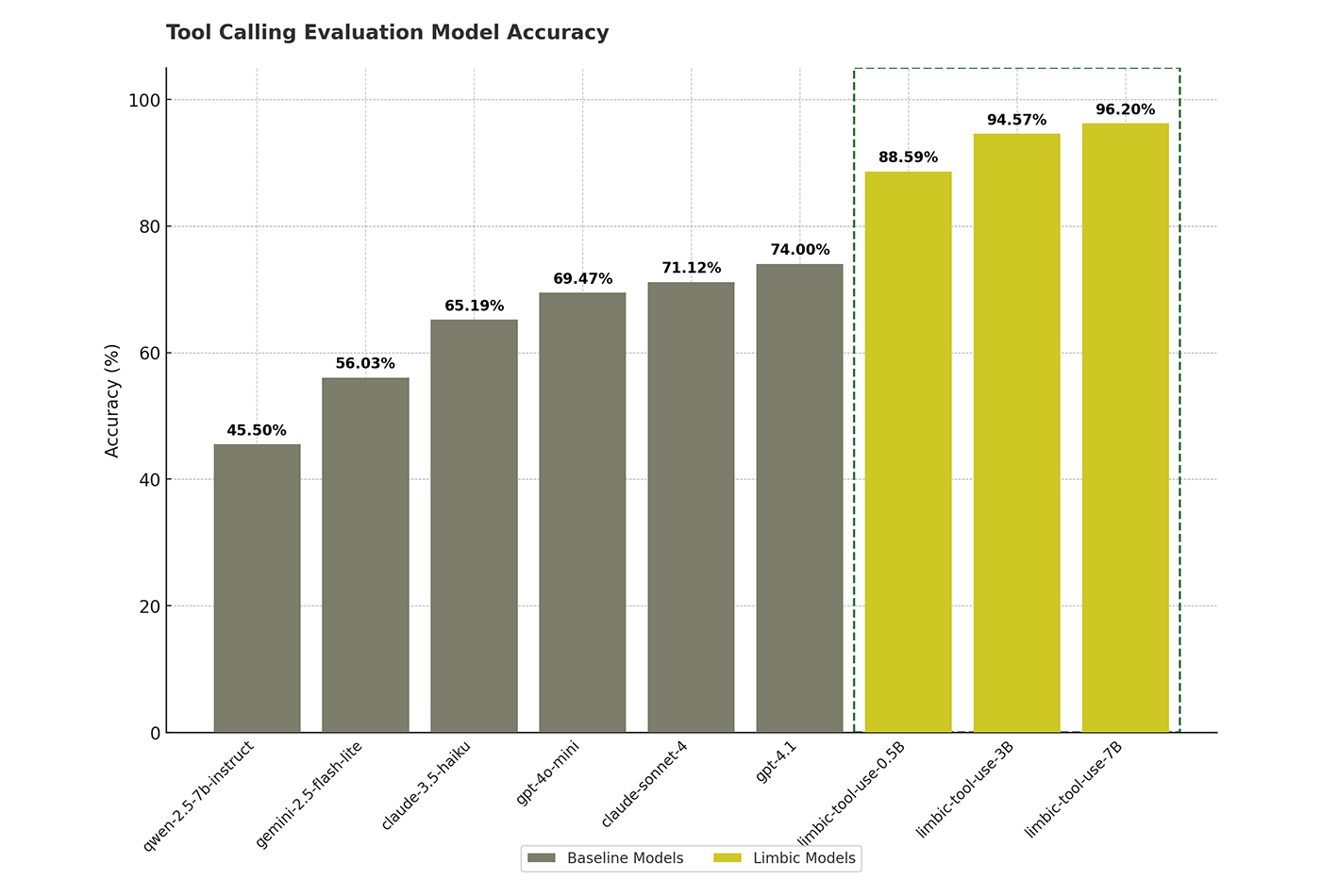
Model Release: limbic-tool-use-0.5B-32K
We've released limbic-tool-use-0.5B, a small model (0.5B parameters) for detecting tool use errors in agents. It was trained on 50M tokens from publicly available MCP server tools and is designed to catch issues like invalid tool calls, misinterpreted responses, and broken sequences. Despite its size, it achieves 88.59% accuracy, significantly outperforming GPT-4.1 (74.0%) and Claude Sonnet (71.12%).

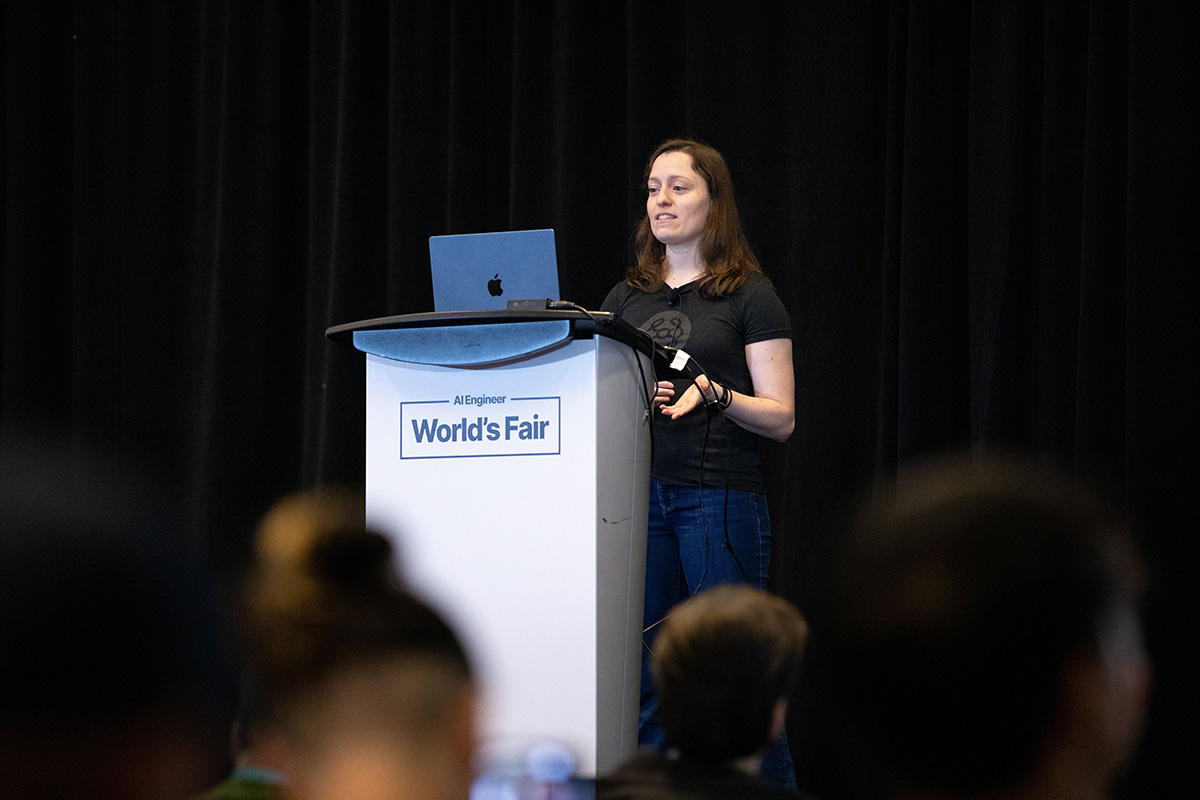
Evaluating AI Search: A Practical Framework for Augmented AI Systems
In this talk, Quotient AI and Tavily share a practical framework for evaluating AI search systems that operate in real-time, web-based environments.
Static benchmarks fall short when the web is constantly changing and user queries are open-ended. We demonstrate how dynamic evaluation datasets, combined with reference-free metrics like hallucination detection, document relevance, and answer completeness, reveal failure modes traditional tests miss.
This approach helps teams building AI agents—whether for legal search, sports updates, or coding assistance—continuously improve performance in production.

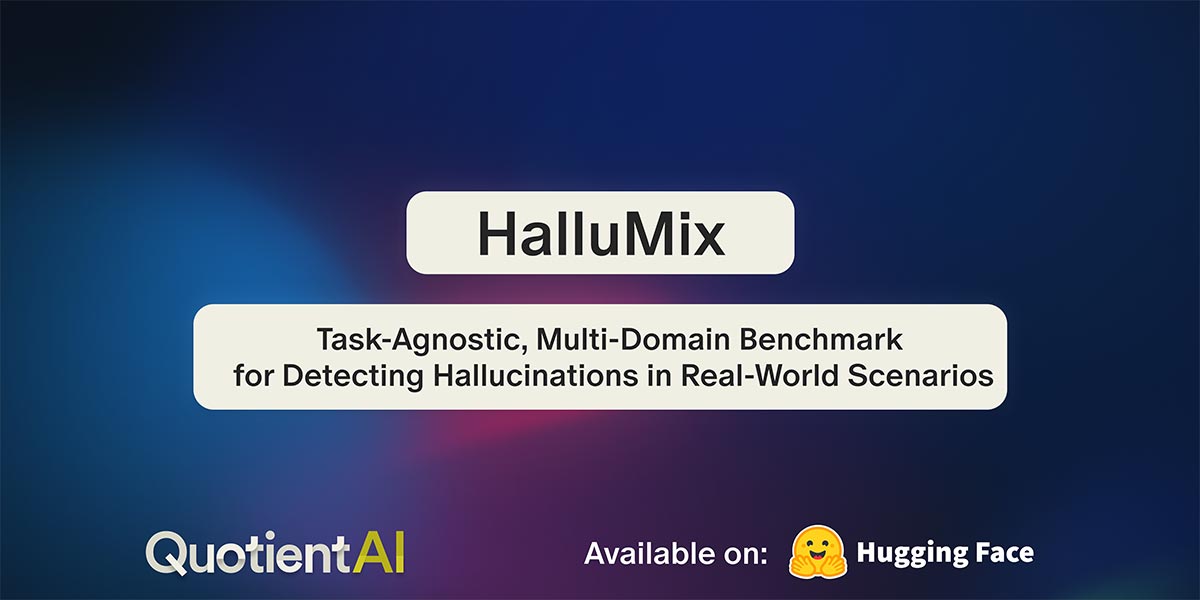
HalluMix: Task-Agnostic, Multi-Domain Benchmark for Detecting Hallucinations in Real-World Scenarios
As large language models (LLMs) are increasingly adopted in critical industries, ensuring their outputs are factually grounded has emerged as a major concern. One prominent issue is "hallucination," where models generate content unsupported by or contrary to the provided evidence. Existing hallucination detection benchmarks are often limited, synthetic, or narrowly focused on specific tasks like question-answering. Recognizing this gap, we developed HalluMix: a task-agnostic, multi-domain benchmark designed to evaluate hallucination detection in realistic, diverse contexts.

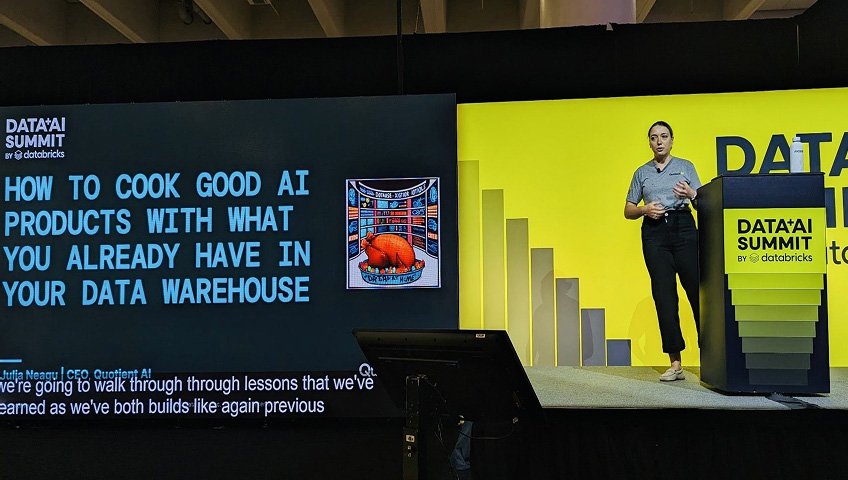
How to Cook Good AI Products with What You Already Have in your Data Warehouse
Realistic, domain-specific evaluation is the most impactful step AI developers can take to make their products practical and reduce deployment risks. Benchmarks are a good starting point, but they often don’t reflect how generative AI performs in everyday use. In this talk, we’ll show how you can use the data you already have in your enterprise to create reference datasets that fit your specific use cases, domains, and organizational knowledge. By tapping into this data, we can test foundational LLMs on key tasks like customer support and product catalog Q&A. We'll also show results on how significantly performance in real-world settings differs from benchmark predictions, and how to use that knowledge to build better AI products.


Navigating RAG Optimization with an Evaluation Driven Compass
Retrieval Augmented Generation (RAG) has become a cornerstone for integrating domain-specific content and addressing hallucinations in AI applications. As the adoption of RAG solutions intensifies across industries, a pressing challenge emerges: understanding and identifying where within the complex RAG framework changes and improvements can be made.
Join Quotient AI and Qdrant as we navigate an end-to-end process for RAG experimentation and evaluation, offering insights into optimizing performance and addressing hurdles along the RAG implementation journey.


Evaluating AI Search: A Practical Framework for Augmented AI Systems
In this talk, Quotient AI and Tavily share a practical framework for evaluating AI search systems that operate in real-time, web-based environments.
Static benchmarks fall short when the web is constantly changing and user queries are open-ended. We demonstrate how dynamic evaluation datasets, combined with reference-free metrics like hallucination detection, document relevance, and answer completeness, reveal failure modes traditional tests miss.
This approach helps teams building AI agents—whether for legal search, sports updates, or coding assistance—continuously improve performance in production.


How to Cook Good AI Products with What You Already Have in your Data Warehouse
Realistic, domain-specific evaluation is the most impactful step AI developers can take to make their products practical and reduce deployment risks. Benchmarks are a good starting point, but they often don’t reflect how generative AI performs in everyday use. In this talk, we’ll show how you can use the data you already have in your enterprise to create reference datasets that fit your specific use cases, domains, and organizational knowledge. By tapping into this data, we can test foundational LLMs on key tasks like customer support and product catalog Q&A. We'll also show results on how significantly performance in real-world settings differs from benchmark predictions, and how to use that knowledge to build better AI products.


Subject-Matter Expert Language Liaison (SMELL)
A framework for aligning LLM evaluators to human feedback
Evaluating large language model (LLM) outputs efficiently and accurately – especially for domain-specific tasks – remains a significant challenge in AI development. We present Subject-Matter Expert Language Liaison (SMELL), a novel framework that combines human expertise with LLM capabilities to automatically create feedback-informed LLM judges. SMELL addresses the limitations of generic LLM judges while maintaining scalability through a four-stage pipeline: data annotation by human experts, feedback synthesis, rubric generation, and evaluation using the generated rubric.judges uses SMELL as part of its autojudge method.


HalluMix: Task-Agnostic, Multi-Domain Benchmark for Detecting Hallucinations in Real-World Scenarios
As large language models (LLMs) are increasingly adopted in critical industries, ensuring their outputs are factually grounded has emerged as a major concern. One prominent issue is "hallucination," where models generate content unsupported by or contrary to the provided evidence. Existing hallucination detection benchmarks are often limited, synthetic, or narrowly focused on specific tasks like question-answering. Recognizing this gap, we developed HalluMix: a task-agnostic, multi-domain benchmark designed to evaluate hallucination detection in realistic, diverse contexts.


judges
judges is a small open-source library to use and create LLM-as-a-Judge evaluators. The purpose of judges is to have a curated set of LLM evaluators in a low-friction format across a variety of use cases that are backed by research, and can be used off-the-shelf or serve as inspiration for building your own LLM evaluators.


Build and Monitor a Web Research Agent with Tavily, OpenAI, LangChain & Quotient
This notebook shows how to build a LangChain-based research assistant powered by Tavily and OpenAI. The agent answers real-world search queries using live web content via Tavily tools, and is monitored using Quotient AI to detect hallucinations, irrelevant retrievals, and other failure modes.


Model Release: limbic-tool-use-0.5B-32K
We've released limbic-tool-use-0.5B, a small model (0.5B parameters) for detecting tool use errors in agents. It was trained on 50M tokens from publicly available MCP server tools and is designed to catch issues like invalid tool calls, misinterpreted responses, and broken sequences. Despite its size, it achieves 88.59% accuracy, significantly outperforming GPT-4.1 (74.0%) and Claude Sonnet (71.12%).

Want to be a partof the Future?
Have feedback, interesting ideas, or requests? Send us a message and perhaps, you can help shape the next wave of AI advancements!
Connect with Labs
